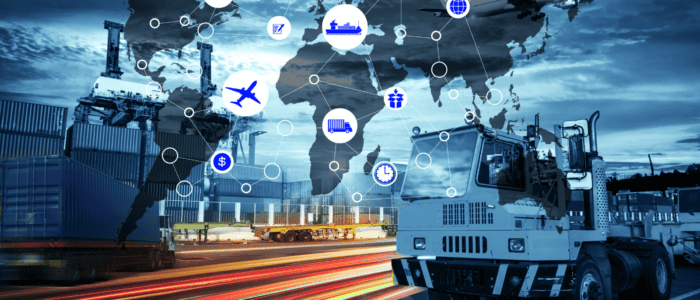Published
EU Trade Policy for a Post-COVID World
By: Natalia Macyra
Subjects: European Union WTO and Globalisation

On May 28, ECIPE together with TradeExperettes, and Women in Trade Network hosted a webinar on EU trade policy after Covid-19. Sabine Weyand (European Commission), Luisa Santos (BusinessEurope), and Elena Bryan (ECIPE) shared their opinions on how global trade might evolve after the pandemic. Inu Manak from the Cato Institute in Washington DC moderated the discussion.
The event highlighted the myriad challenges facing Europe given that states often turn inward in a crisis, which can have long-term implications for economic recovery and maintaining trade commitments. Dr Manak emphasized that trade would be an essential part of the recovery, but that the number of issues on the trade agenda would require a delicate juggling of priorities.
The panellists were asked to reflect on current challenges and future actions that could facilitate a strong recovery in both the public and private sector. Director-General for Trade, Sabine Weyand emphasised that trade policy is a geopolitical instrument that the EU can use to leverage its influence in the global economy. She also pointed out that the future recovery of the European and global economy depends on how well the EU uses this unique, non-budgetary instrument. Ms Weyand noted that three trends reinforced by the current crisis would need to be addressed in a post-Covid environment namely a) state intervention and surge of managed trade that required coordination to avoid rising protectionism through safeguard measures b) the decoupling between the US and China in which the EU should not be a neutral bystander but actively engage in promoting measures to address state capitalist distortions and c) the need for structural reform of the multilateral system by addressing dispute settlement, subsidies, sustainability and the link between trade and health to contribute to a strong global rulebook.
Given the pandemic, Ms Weyand noted that trade policy was drawing on the concept of open strategic autonomy as outlined in the European recovery plan to protect the Single Market and ensure a level playing field, while remaining committed to open trade. At the same time, the pandemic had revealed vulnerabilities and the different rates of recovery also generated concerns about global supply chains, which had to be analysed in more detail. Having said that, Ms Weyand, emphasised that “resilience is not self-sufficiency. If everyone goes for reshoring we will become poorer”. The goal is to shift to risk management, leading Ms Weyand to argue that supply chains should consider moving from ‘just-in-time’ to ‘just in case’.
Following the previous speaker, Ms Bryan, ECIPE and formerly USTR, highlighted the fact that we would need to deal both with short-term economic needs, and long-term recovery process. There is no either-or between health and economy, and any plans and policies should take both into account. She also agreed that diversification is a key, and businesses and consumers should not be bound to only one supplier. Besides, Ms Bryan expanded on the idea of ‘just-in-time’ versus ‘just-in-case’ and argued that we need a bit of both.
‘The current health and economic crisis also show a need for a real discussion about the value and a purpose of the WTO, and other organizations, and how we want them to behave. We should do it thoughtfully and honestly as some of the rules might not be perfect and are not up to the challenges we face today’, said Ms Bryan.
Next, Ms Santos, of BusinessEurope presented a business perspective about the importance of private sector investment for economic recovery. She explained how companies were affected by recent market distortion measures prior to and continuing during the pandemic that should be temporary measures to ensure a healthy and speedy recovery. Furthermore, Ms Santos also identified an increase in state interventions during the crisis and argued that the private sector should be the future motor of economic revival. Trade policy is a very good tool to induce recovery, but future investments and production should rely on action from the private sector to remain globally competitive. However, we also need to make sure that the Covid-19 measures are not permanent. The ‘green deal’ and the digital transformation will also bring new challenges for businesses. Therefore, it is crucial to focus on the necessary conditions to keep the existing production in Europe. Ms Santos also emphasised the importance of digital trade that enabled many small and medium-sized companies to continue operating despite the lockdown.
‘The digital is an area where we have a lot to do. We need to continue the e-commerce discussion on the WTO, but also address new challenges such as cybersecurity’, stressed Ms Santos.
In her concluding remarks, Dr Manak stressed “the current crisis has revealed that we are at an inflection point. Either we retreat into our national borders and cast aside decades of institutional cooperation, or we work our way out of the morass. The latter is harder, and does not mean we will go back to some status quo. What we need now is a creative rethink of how our institutions can better respond to the modern realities of our interconnected world.”
You can watch the entire discussion below.